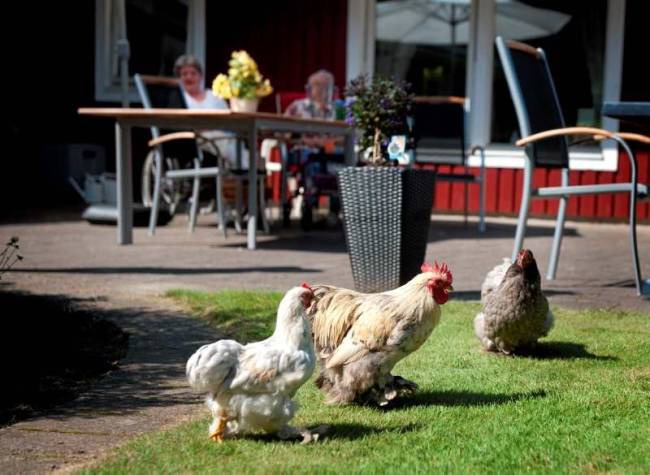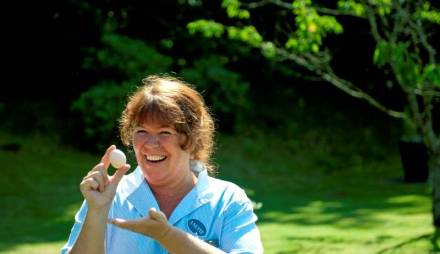Unexpected help for dementia patients
Alice, Agda, Pyttan, Victor and Pål have all become part of 'staff' at the Bokhöjden assisted living facility in Sweden, and well, they're hens.
-
 The dementia patients at Bokhöjden in Hjärnarp in Skåne are much happier and open since a group of hens (and two roosters) arrived. Dementia, which is not a single disease but rather a non-specific illness syndrome, affects areas of cognition like memory, attention, language and problem solving. Depression may be another symptom, as may apathy. According to research, being surrounded with animals has many positive effects: Dement people move better, become less aggressive and need less medication.
The dementia patients at Bokhöjden in Hjärnarp in Skåne are much happier and open since a group of hens (and two roosters) arrived. Dementia, which is not a single disease but rather a non-specific illness syndrome, affects areas of cognition like memory, attention, language and problem solving. Depression may be another symptom, as may apathy. According to research, being surrounded with animals has many positive effects: Dement people move better, become less aggressive and need less medication. -
-
The people at Bokhöjden in Hjärnarp (an assisted living alternative for older people who suffer from dementia and Alzheimer’s disease) have now been joined by a group of hens! And it is an experiment that has turned out to be a success.
-
 Anette Neumayer, assistant nurse at Bokhöjden in Hjärnarp and what she found in the Wendy house!
Anette Neumayer, assistant nurse at Bokhöjden in Hjärnarp and what she found in the Wendy house! -
-
“We see a marked difference in our patients,” says Anette Neumayer, assistant nurse at Bokhöjden. “Their relationship to the animals is tender, soft and happy. The animals create a calm in the patients that’s unlike anything else.”
-
Alice, Agda and Pyttan (hens) and Victor and Pål (roosters) are now the great topic of conversation at Bokhöjden. Daily the fowl strut around the flower beds, their nights are spent in a converted Wendy house. All patients are engaged in the welfare of the birds, they ask how they are doing, if they have been fed and what they are doing. “In many cases the hens have also helped strengthen the relationships between the patients and their families,” Neumayer continues. “It can sometimes be difficult to communicate with a dement person, but the hens create a natural topic of conversation, and that can help detangle other knots as well.” Bengt Winblad, professor in Geriatrics at Karolinska Institutet, attests to the meaning of animals among older people: “The animals give unconditional love and might be a reminder of what was positive in childhood,” he says. “People who are dement have interests like the rest of us do, it’s just a matter of finding out what each individual likes.”
-
-
